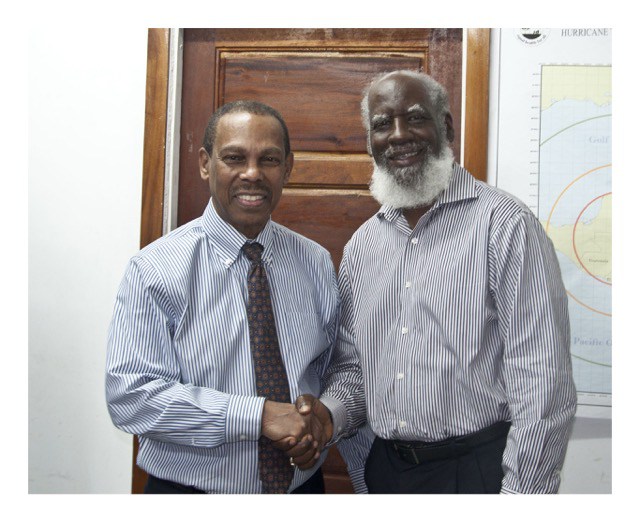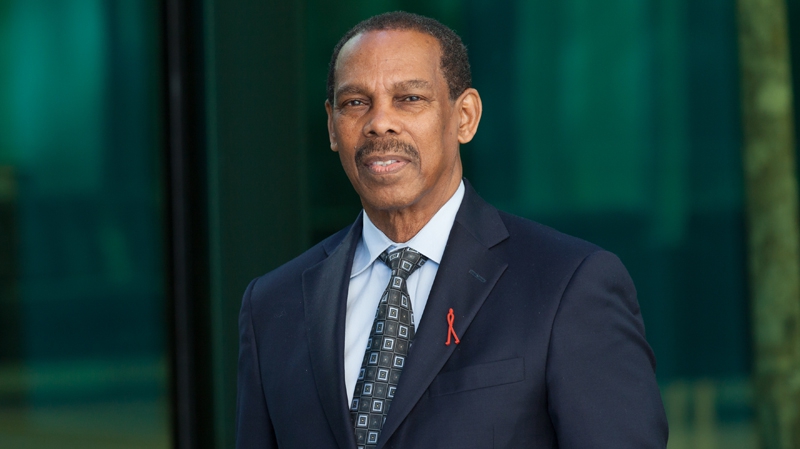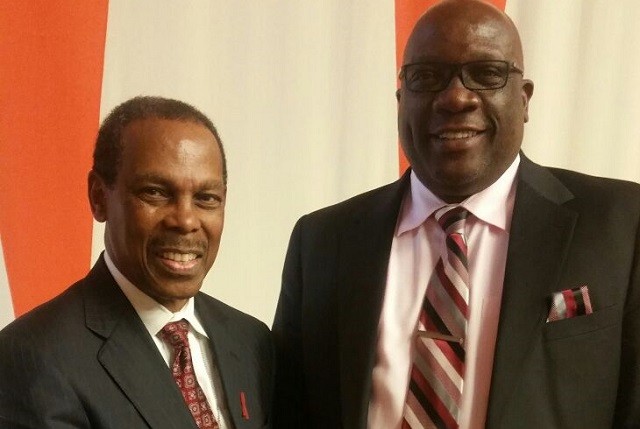|
I welcome you all most sincerely to this Fifteenth Meeting of the Council for Human and Social Development.
This Meeting is taking place at a critical juncture in the life of the Community. The CARICOM Single Market was established in January this year. Soon after, a new democratically elected government in Haiti returned to the fold of the Community and took its rightful place at the table of the Conference of Heads of Government in St Kitts and Nevis in July 2006. Special Welcome to Haiti And today, I am sure that you will join me in warmly recognising the presence of Hon. Gabriel Bien Aime, Minister of Education and Mr.Mervill Guyillaumatti, Education Advisor of Haiti. At the upcoming PANCAP Annual General Meeting to be held in the British Virgin Islands on 8-9 November, a special session will be dedicated to Health Issues in Haiti with a view to developing a joint CARICOM/PAHO programme of technical assistance to Haiti. What a difference a year makes. In fact the Secretary- General, H.E. Edwin Carrington, Prime Minister Denzil Douglas, Chair of the Community and other CARICOM Officials are currently in Haiti holding talks with President Preval and other Officials on Haiti’s development strategy and its involvement in the CSME. Education and Labour: Putting a human face to the CSME One of the major items on the agenda is the implementation of the CARICOM Single Market and Economy (CSME) and the critical roles of education and labour which are the foci of this meeting. This provides a springboard for discussion of issues that put a human face to the CSME. Hence decisions are to be taken on workforce preparation, the conditions for decent work, accreditation and quality assurance, as well as the monitoring and evaluation of poverty reduction and achieving the Millennium Development Goals (MDGs) to which all member states are committed. In this regard there is growing recognition that free movement of labour, one of the pillars of the CSME that directly concerns this Council, must be accompanied by common procedures that provide a wide a array of opportunities to Caribbean citizens to work and play in an economic environment of enhanced societal viability. This Council is charged with the responsibility of forging inter-sectoral linkages that improve the quality of life of Caribbean citizens and increase their competitiveness in the global economy which threatens to engulf and even overwhelm small societies like ours. Over the past year, the Council’s work has contributed in no small measure to advancing the CSME agenda as well as the theme of this meeting: Investing in Human Resources with Equity. In this regard, some significant activities of specific concerns to the educational and labour sectors are to be noted. Some COHSOD Activities in the past year First, the CARICOM Youth Ambassadors Programme has concluded widespread consultations and in collaboration with the Directors of Youth has produced a Caribbean Youth Development Strategy. Given the identifiably high levels of risks, violence and unemployment among and involving youth, there is some urgency about implementing this strategy. In fact, Heads of Government have mandated the establishment of a Caribbean Commission on Youth Development to focus on the solutions to the problems faced by our Region’s youth. No doubt the issues modifying risks behaviours that for example make HIV/AIDS the highest cause of death among the age group, 15-44 years and underperformance of male in the educational system will be among the priorities for the Commission CARIFESTA IX held in Trinidad and Tobago in September 2006 has come and gone and on your behalf I wish to record our gratitude to the Government and people of Trinidad and Tobago for hosting this event. While the CARICOM Secretariat is yet to complete its evaluation of the Festival, it is to be noted that it attracted widespread participation from the entire Caribbean and beyond and provided a good illustration of the vast talent that this Region possesses. Among the major lessons learnt is that this Festival must now be taken to a higher level to become a truly international event. The new Strategic Plan for CARIFESTA proposed by the Regional Cultural Committee and approved by this Council in 2005 and Heads of Government subsequently must be put into operation by the time of CARIFESTA X in Bahamas in 2008. If the arts are to be treated seriously member states must answer the call to make the Foundation for Colure and the Arts, a reality. Another notable success with which this Council has been associated is work of the Commission for Health and Development. This Commission originated out of a recommendation from COHSOD in March 2003 and its Report presented to the Conference of Heads of Government in 2005 was received with enthusiasm as much for the quality of the research as for its practical recommendations. Follow up activities to the work of the Commission include a study on the non-communicable diseases and their implications for economic development. We are pleased to have with us Sir George Alleyne, Chair of the Commission who has taken time off his very busy schedule to share his thoughts on the priorities for health and development in an open session on Friday (tomorrow). I can only tell you that the Government of Trinidad and Tobago which hosted a public consultation with over 300 participant on this issue, coordinated by Sir George on 15 September, has led the way with implementing several recommendations from his report, among them the introduction of a tax on tobacco and the sponsorship of public parks to facilitate healthy life styles among the public. We hope other Governments will follow this example. As many of you will know, the Region has led the way in accelerating the collective response to HIV/AIDS with the establishment of the Pan Caribbean Partnership against HIV/AIDS (PANCAP) which has been acclaimed by the UN as a best practice. Following on the overall Caribbean Regional Strategic Framework for HIV/AIDS, Ministers of Education at a special session in Trinidad and Tobago in June 2006 developed a series of guidelines in its Declaration for an education sector response to HIV/AIDS. This is indeed a significant step that could make a difference to the region’s aim to achieve Universal Access to HIV/AIDS prevention, care and treatment. Accompanied by sound strategies for reducing stigma and discrimination at the workplace, we in this region would have at least moved in the direction of winning the war against HIV and AIDS. The Way Forward These are just some of the issues that this Council has so ably confronted over the past year. As I pointed before, we face a huge challenge of putting human face to the CSME and to do so the Heads have challenged this Council to reexamine the approximate mechanisms for functional cooperation to anchor the Region’s economic competitiveness in the global system. At this meeting, several substantive research findings and policy papers will be presented including a framework for technical and vocational education; the Caribbean Vocational Qualification; progress toward achieving the Caribbean Knowledge and Learning Network (CKLN); risks, violence and vulnerability in primary and secondary schools; an investigation into migration and effects on education and the labour force.
We have a packed agenda. But we are hoping that this meeting will pave the way for enhancing our human capital by placing greater emphasis on viable education and labour policies. The real test is how effective can we be in translating polices into action and in this quest we need the collaboration and synergies to be sustained between the regional and national levels. In this way this Council could give meaning to the CSME. |
|
|
|
Press ReleasesSpeeches





